

| Region rejsu : Morze Śródziemne, Rejsy transatlantyckie |
| Firma : Costa Cruises |
| Statek : Costa Diadema |
| Data rozpoczęcia : sob. 07 lis 2026 |
| Data zakończenia : niedz. 22 lis 2026 |
| Liczba nocy : 15 nocy |
| Dzień | Data | Port | Wypłynięcie | Odpłynięcie |
|---|---|---|---|---|
| 1 | 7.11 sob. | Lizbona / Portugalia | 19:00 | |
| 2 | 8.11 niedz. | Dzień na morzu / Morze | ||
| 3 | 9.11 pon. | Casablanka / Morocco | 08:00 | 18:00 |
| 4 | 10.11 wt. | Dzień na morzu / Morze | ||
| 5 | 11.11 śr. | Santa Cruz, około. Teneryfa (Wyspy Kanaryjskie) / Hiszpania | 09:00 | 19:00 |
| 6 | 12.11 czw. | Dzień na morzu / Morze | ||
| 7 | 13.11 pt. | Dzień na morzu / Morze | ||
| 8 | 14.11 sob. | Mindelu / Cape Verde | 08:00 | 18:00 |
| 9 | 15.11 niedz. | Dzień na morzu / Morze | ||
| 10 | 16.11 pon. | Dzień na morzu / Morze | ||
| 11 | 17.11 wt. | Dzień na morzu / Morze | ||
| 12 | 18.11 śr. | Dzień na morzu / Morze | ||
| 13 | 19.11 czw. | Maceió / Brazylia | 07:00 | 13:00 |
| 14 | 20.11 pt. | Salwador / Brazylia | 07:00 | 13:00 |
| 16 | 22.11 niedz. | Rio de Janeiro / Brazylia | 08:00 |
Accommodation in a cabin of the selected category
Meals in the restaurant (buffet) on the "buffet" system, including breakfast, lunch and dinner, as well as snacks in the cafe and pizzeria throughout the day. Water, juices, tea, coffee from machines are available in the buffet free of charge 24 hours.
Meals in the main restaurant "a la carte". As a rule, all liners have two or three main restaurants with menu service. The dishes in such restaurants are more refined and varied than in the buffet. Drinks are ordered for an additional fee.
Entertainment on board, such as animation, master classes, aerobics, evening performances in the theatre, live music in bars, discos.
Access to all public areas of the liner: fitness center (gym), swimming pools, jacuzzis by the pools, water park, library, mini-clubs for children.
Services of educators in mini-clubs for children from 6 months to 17 years
Games on sports grounds, including tennis, mini-football, basketball, badminton, mini-golf and others.
Use of watercraft during embarkation or disembarkation in ports if the liner does not enter the port.
Luggage transportation at the beginning and end of the cruise.
Service charge, of 12 euros per night per guest.
Depending on the cabin category, you may be provided with additional services free of charge. For example, ALL INCLUSIVE drinks in bars and restaurants, cabin service with free delivery 24 hours, use of the spa center.
Important: MSC reserves the right to change the cabin to the same category or higher. However, MSC will do everything possible to avoid changing the cabin.
Additional costs:
insurance (medical insurance, travel cancellation insurance)
airfare, rail transport (transportation costs to the port of departure and from the port of arrival of the ship)
transfers (from the airport/train station to the sea port and back)
excursions
pre- and post-cruise hotel reservations if you want to extend your holiday on land.
Additionally paid on the liner:
visiting alternative bars and restaurants
services of spa centers, hairdressers, beauty salons
medical services
laundry, ironing
casino
slot machines, etc. depending on the specific liner.
For any purchase of goods on the liner in bars, restaurants, shops and services in the spa center, hairdresser, etc. you will be additionally charged a service fee, which will average 15% of the purchase price.
Costa Cruises Fare Plans
Costa offers three fare options, allowing every guest to choose the right level of comfort and included services:
My Cruise — Basic Fare
Ideal for travelers who value flexibility and want to select only the services they need.
What’s included:
Accommodation in the chosen cabin
Full board: breakfast, lunch, dinner, and snacks
Costa Club points accumulation
All-Inclusive — Everything Included
A comfortable fare that includes the My Drinks package. Perfect for those who want to know all their expenses in advance.
What’s included:
Accommodation in the chosen cabin
Full board: breakfast, lunch, dinner, and snacks
My Drinks package: unlimited beverages by the glass — wine, beer, whiskey, cocktails, hot drinks, juices, and soft drinks
1 bottle of 0.5L water per day per person
Choice of dinner time
Costa Club points + discount on the next cruise
If your client chooses a Suite, the following are also included:
My Drinks Plus package (includes premium beverages and minibar)
24/7 personal butler service
Super All-Inclusive — Maximum Comfort
The most complete fare including drinks, meals, and multilingual guided excursions.
What’s included:
Accommodation in the chosen cabin
Full board: breakfast, lunch, dinner, and snacks
My Drinks package: a wide selection of alcoholic and non-alcoholic beverages
1 bottle of 0.5L water per day per person
My Explorations package: a set of excursions + discounts on additional tours
Flexible cancellation terms
Choice of dinner time
Costa Club points + discount on the next cruise
If your client chooses a Suite, the following are also included:
My Drinks Plus package (includes premium beverages and minibar)
24/7 personal butler service
To confirm your booking, a minimum deposit of 30% of the cruise fare is required.
The final payment must be made no later than 60 days before the cruise departure.
After the deposit or full payment is received (depending on the booking date), you will receive confirmation.
Boarding passes are sent 14 days before departure upon completion of online check-in.
Payment methods:
By invoice
By credit/debit card
Cancellation Penalties
Rates MyCruise, All Inclusive, Super All Inclusive:
60 days or more before the cruise – €100 per person retained
59–40 days before the cruise – 30% of the total cost
39–25 days before the cruise – 55% of the total cost
24–16 days before the cruise – 80% of the total cost
15 days or less before the cruise – 100% of the total cost
Last Minute Rate:
100% of the total cruise cost charged from the moment of booking
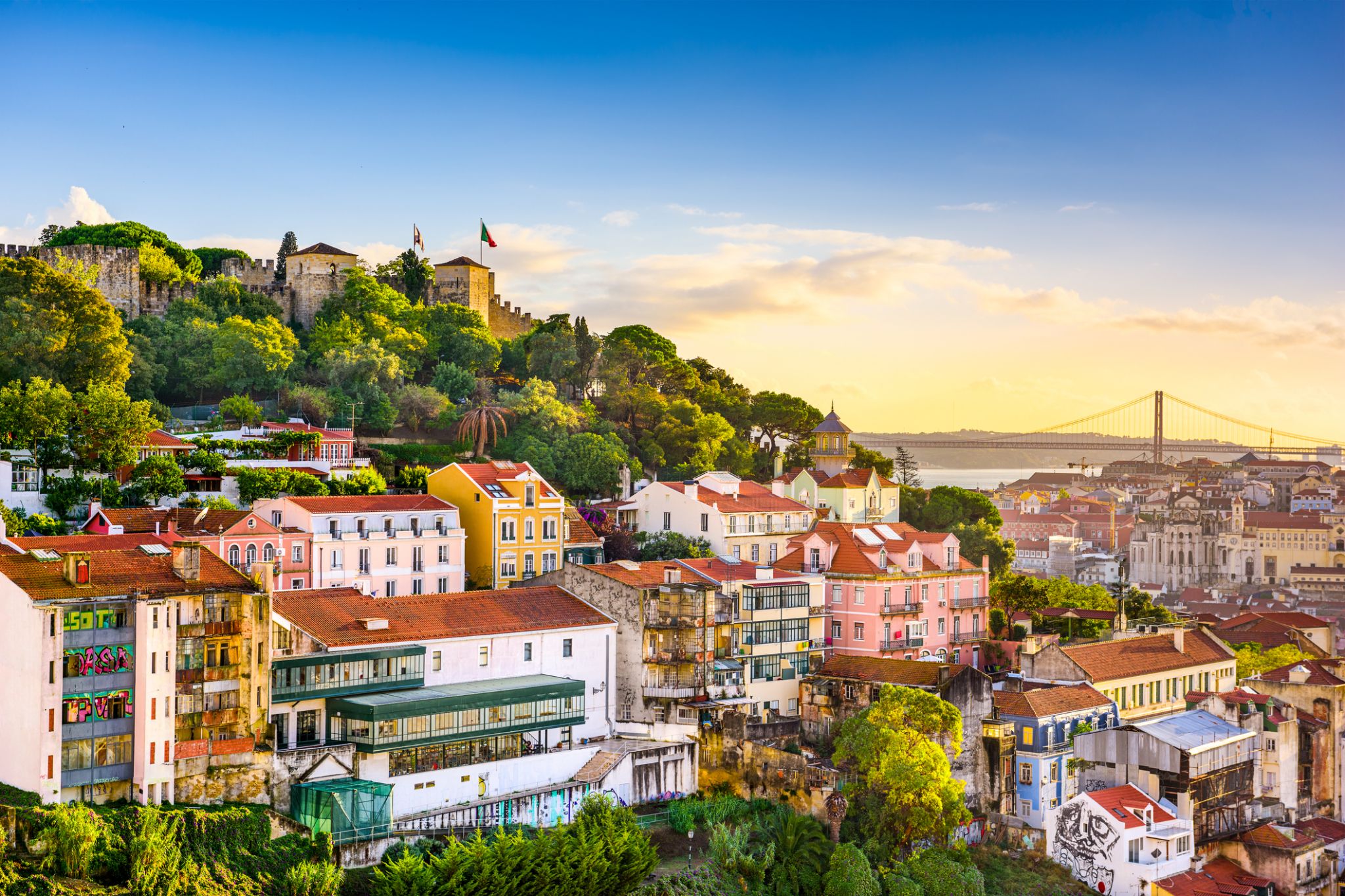
Lizbona jest stolicą i największym miastem Portugalii, z szacowaną populacją 505 526 mieszkańców w granicach administracyjnych na obszarze 100,05 km². Jej obszar miejski rozciąga się poza granice administracyjne miasta i liczy około 2,8 miliona mieszkańców, co czyni go jedenastym najbardziej zaludnionym obszarem miejskim w Unii Europejskiej. Około 3 milionów ludzi mieszka w aglomeracji lizbońskiej (która stanowi około 27% populacji kraju). Jest to najbardziej wysunięta na zachód stolica kontynentalnej Europy i jedyna położona nad Oceanem Atlantyckim. Lizbona leży na zachodnim Półwyspie Iberyjskim nad Oceanem Atlantyckim i rzeką Tag. Najbardziej wysunięte na zachód obszary jej aglomeracji tworzą najbardziej wysunięty na zachód punkt kontynentalnej Europy, znany jako Cabo da Roca, położony w górach Sintra.
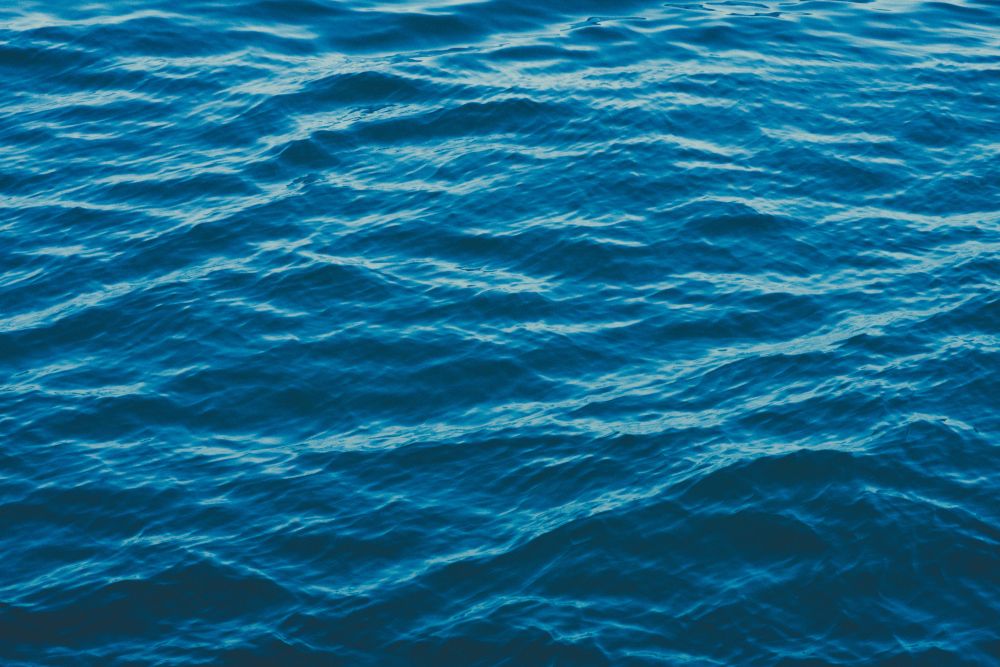
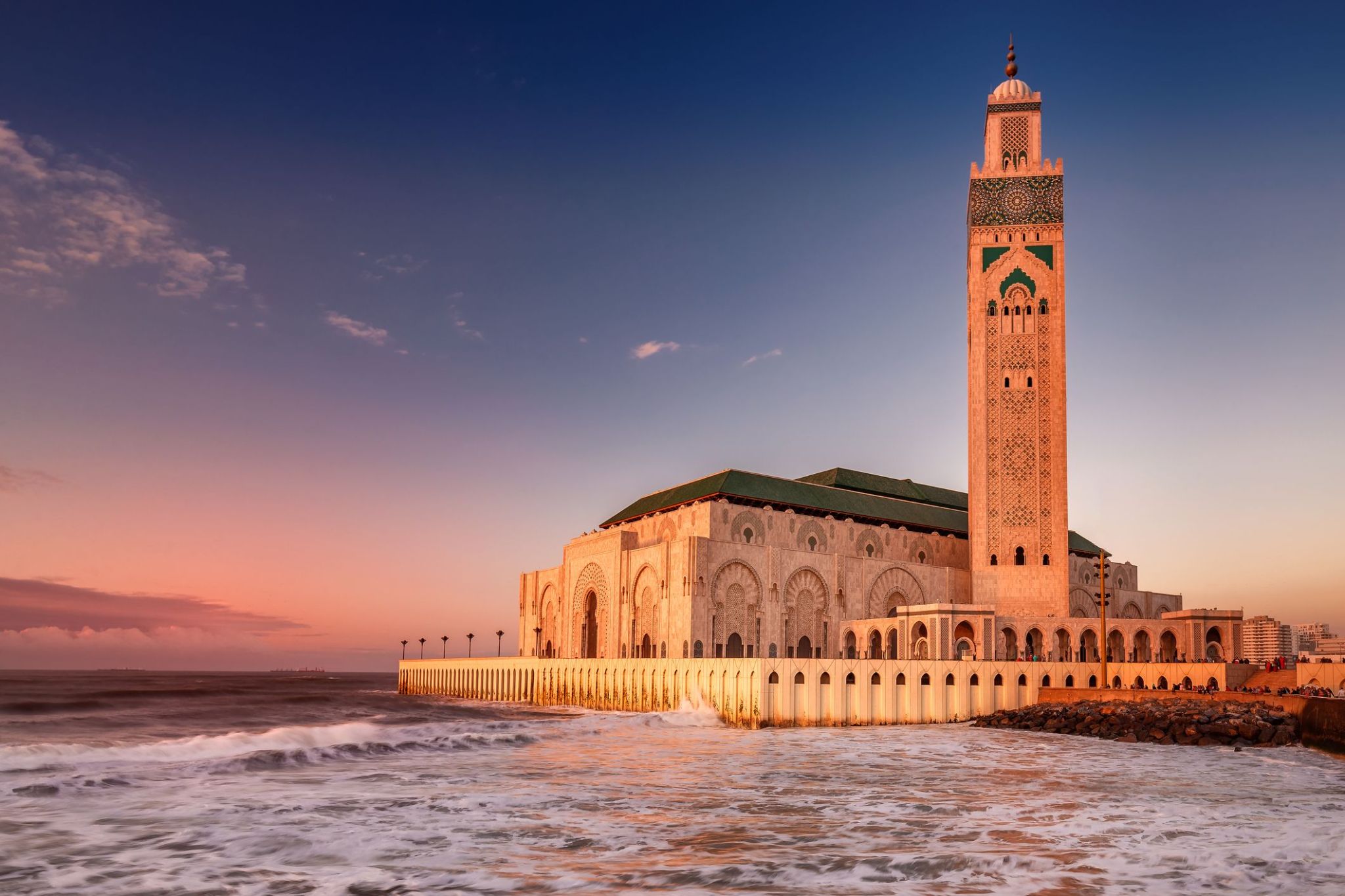
Casablanca położona jest w centralno-zachodniej części Maroka i graniczy z Oceanem Atlantyckim. Jest największym miastem Maroka. To także największe miasto regionu Maghrebu, a także jedno z największych i najważniejszych miast Afryki pod względem gospodarczym i demograficznym.
Casablanca jest głównym portem Maroka i jednym z największych centrów finansowych na kontynencie. Według szacunków z 2014 roku miasto liczy około 3,35 miliona mieszkańców na obszarze miejskim i ponad 6,8 miliona w regionie Casablanca-Settat. Casablanca uważana jest za gospodarcze i biznesowe centrum Maroka, podczas gdy polityczną stolicą kraju pozostaje Rabat.
Wiodące marokańskie firmy oraz liczne międzynarodowe korporacje działające w kraju mają swoje siedziby główne i główne zakłady przemysłowe w Casablanca. Najnowsze dane przemysłowe pokazują, że Casablanca zachowuje swoją historyczną rolę głównej strefy przemysłowej kraju. Port w Casablanca jest jednym z największych sztucznych portów na świecie i drugim co do wielkości portem w Afryce Północnej po Tanger-Med, 40 km na wschód od Tangeru. Casablanca jest także główną bazą morską Królewskiej Marynarki Wojennej Maroka.

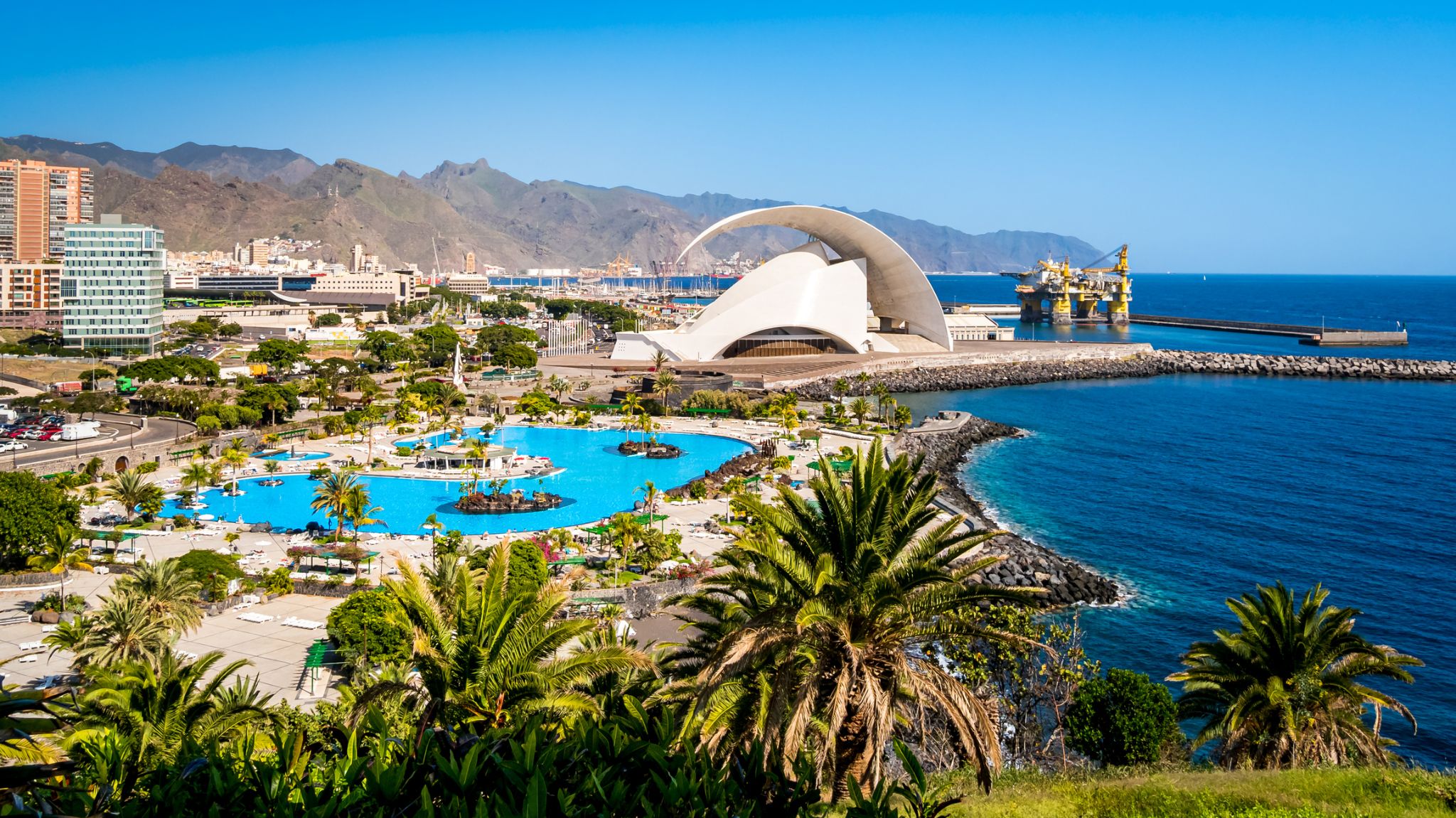


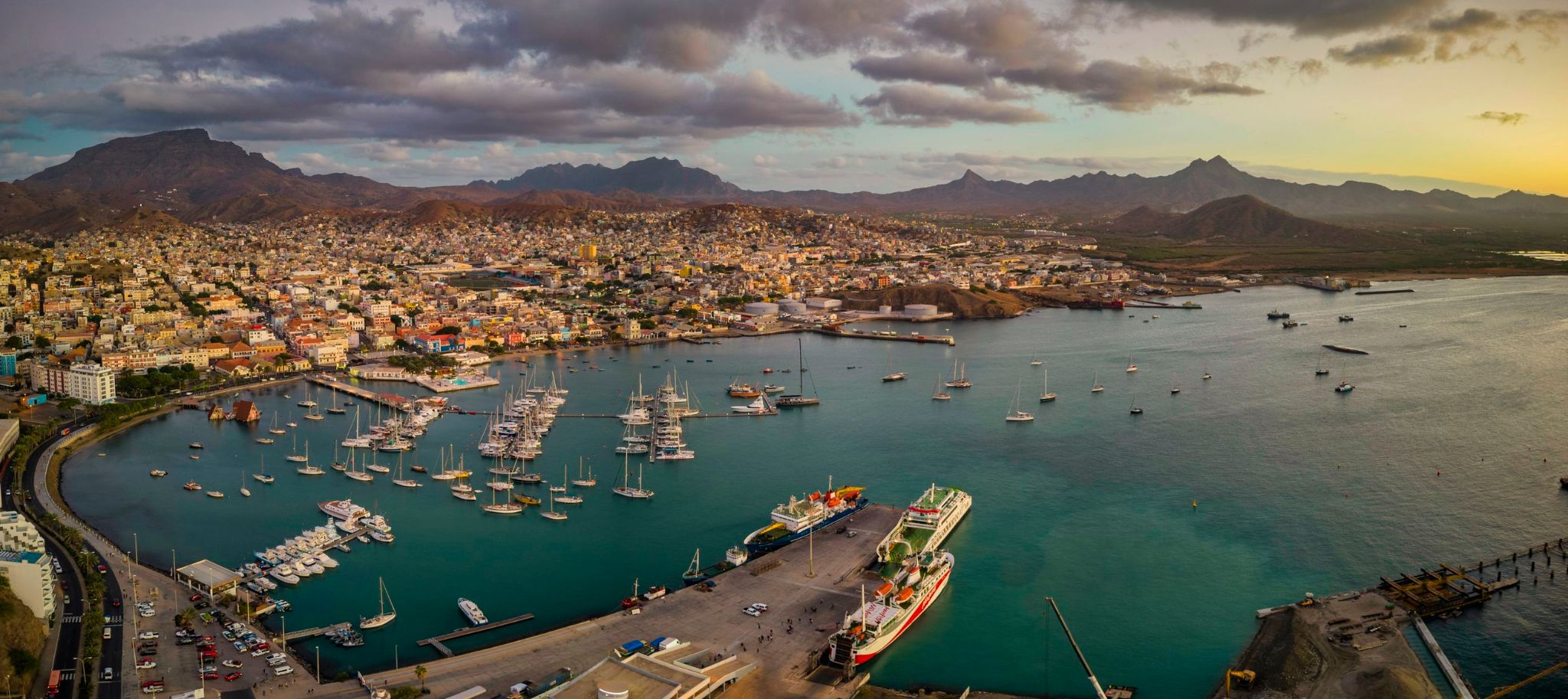
Turkusowe fale Atlantyku otaczają zatokę Mindelo na wyspie São Vicente, zapraszając podróżnych do zanurzenia się w rytmy muzyki kabowerdyjskiej i ciepłej atmosfery. To miasto, znane jako kulturalna stolica Republiki Zielonego Przylądka, zachwyca kolorowymi kolonialnymi budynkami, żywymi dźwiękami morny i coladeiry oraz ulicznymi kawiarniami, w których można spróbować świeżych owoców morza przy dźwiękach gitary.
W Mindelo na gości czekają spacery nadmorską promenadą z widokiem na góry i port, przytulne sklepiki z lokalnym rękodziełem oraz piaszczyste plaże, gdzie delikatny wiatr niesie zapach oceanu. To miasto daje szansę poczuć powolne tempo wyspiarskiego życia, zanurzyć się w muzyce rozbrzmiewającej na każdym kroku i zabrać do domu wspomnienia o prawdziwym Cabo Verde, pełnym uśmiechów i ciepłego słońca.




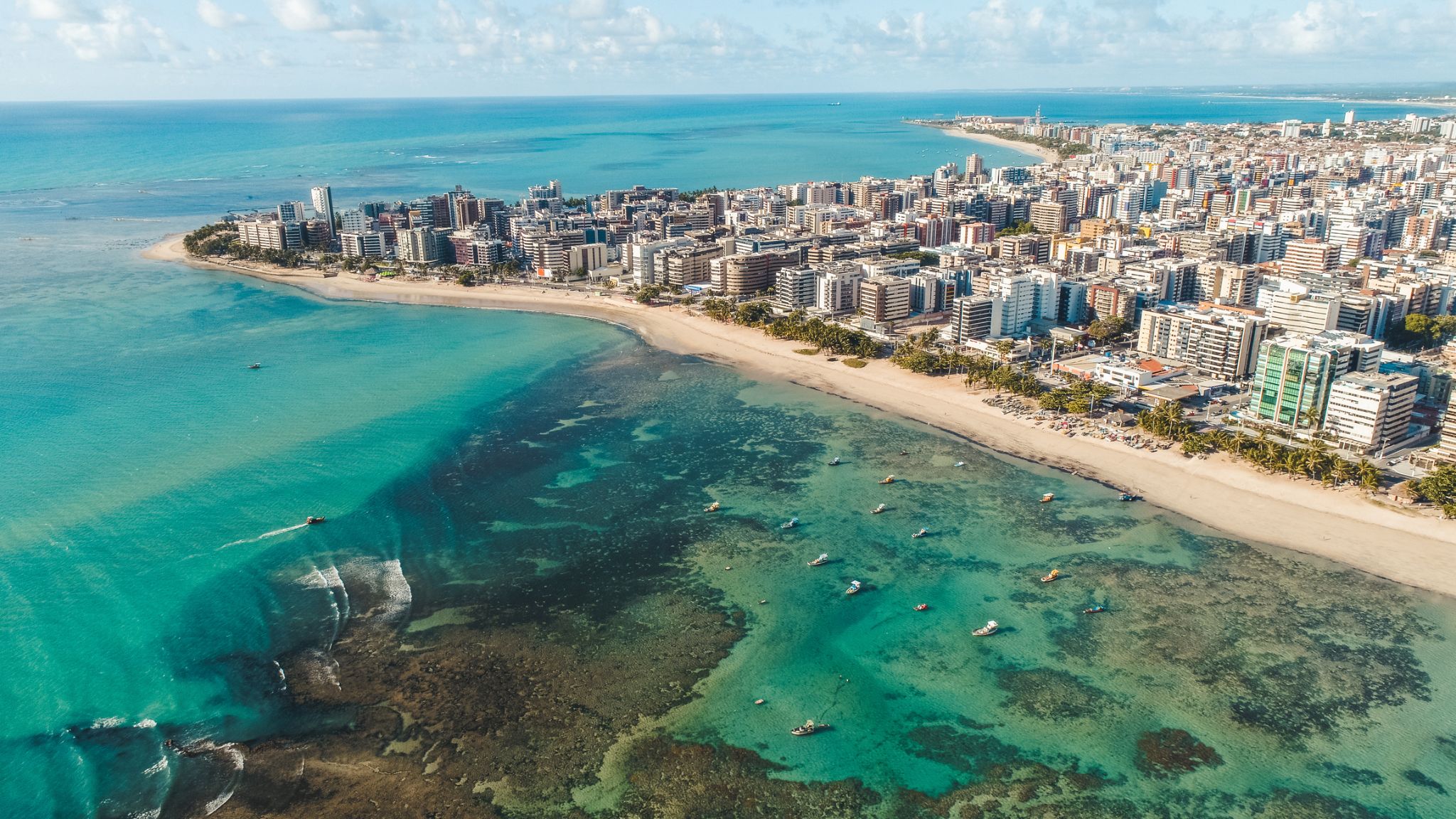
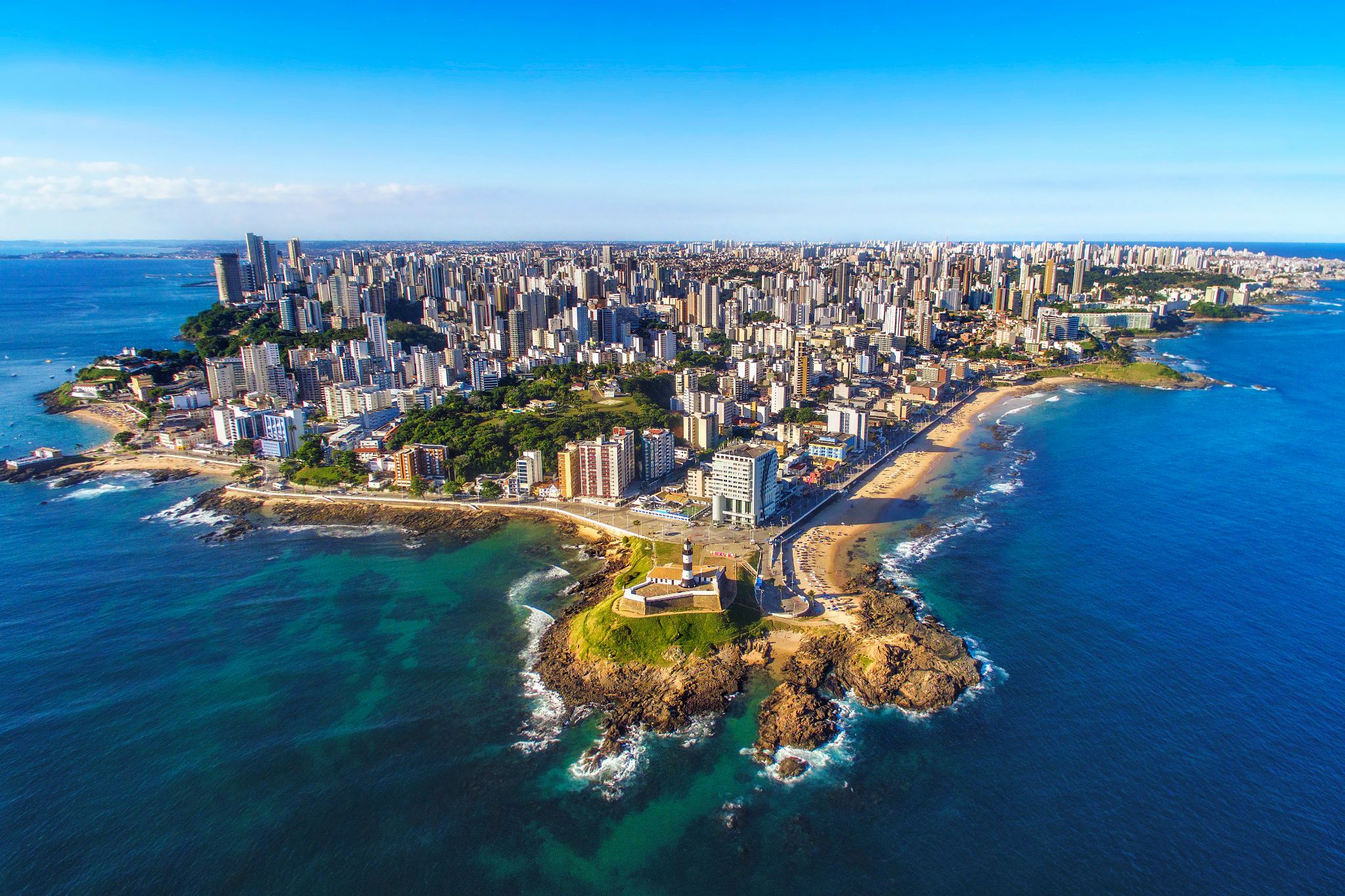
Salvador is the capital of Bahia state and was formerly the first capital of Brazil. Salvador is known for its endless number of churches, as well as for being a land of majestic fortresses. After visiting these places, it is also worth taking a look at the Chapada Diamantina National Park – the most interesting natural park in Brazil. In Salvador, there reigns an atmosphere of joy, revelry, and holidays – this is due to the fact that the local population was influenced by Africa. In Salvador, you can always admire the natural beauty of this area. You will be enchanted by the sensuality of this land, and you will be able to discover a piece of its mysterious power.
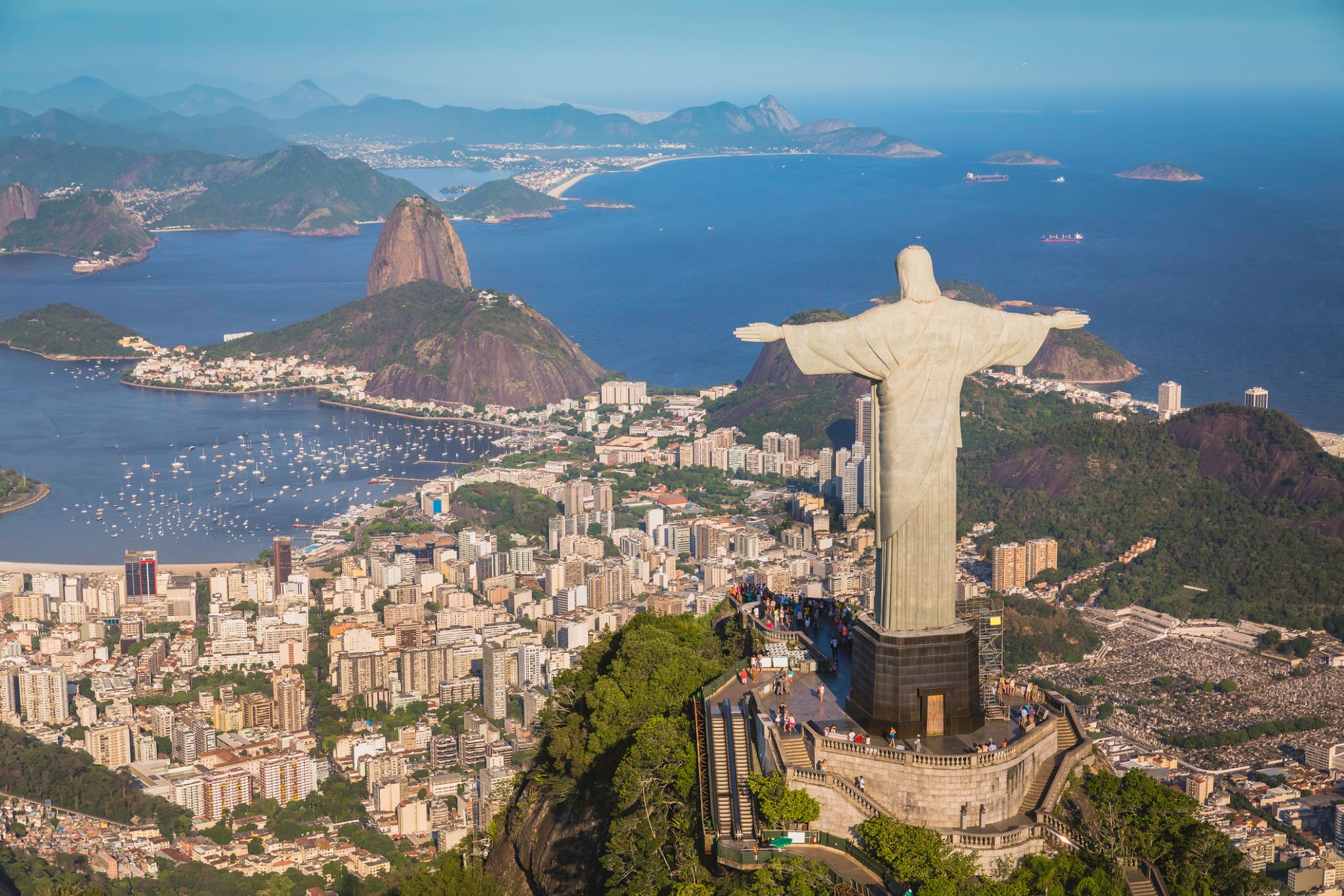
Rio de Janeiro is the second-most populous municipality in Brazil and the sixth-most populous in the Americas. The metropolis is anchor to the Rio de Janeiro metropolitan area, the second-most populous metropolitan area in Brazil and sixth-most populous in the Americas. Rio de Janeiro is the capital of the state of Rio de Janeiro, Brazil's third-most populous state. Part of the city has been designated as a World Heritage Site, named "Rio de Janeiro: CariocaLandscapes between the Mountain and the Sea", by UNESCO on 1 July 2012 as a Cultural Landscape.
Founded in 1565 by the Portuguese, the city was initially the seat of the Captaincy of Rio de Janeiro, a domain of the Portuguese Empire. Later, in 1763, it became the capital of the State of Brazil, a state of the Portuguese Empire. In 1808, when the Portuguese Royal Court transferred itself from Portugal to Brazil, Rio de Janeiro became the chosen seat of the court of Queen Maria I of Portugal, who subsequently, in 1815, under the leadership of her son, the Prince Regent, and future King João VI of Portugal, raised Brazil to the dignity of a kingdom, within the United Kingdom of Portugal, Brazil, and Algarves. Rio stayed the capital of the pluricontinental Lusitanian monarchy until 1822, when the War of Brazilian Independence began. This is one of the few instances in history that the capital of a colonising country officially shifted to a city in one of its colonies. Rio de Janeiro subsequently served as the capital of the independent monarchy, the Empire of Brazil, until 1889, and then the capital of a republican Brazil until 1960 when the capital was transferred to Brasília.